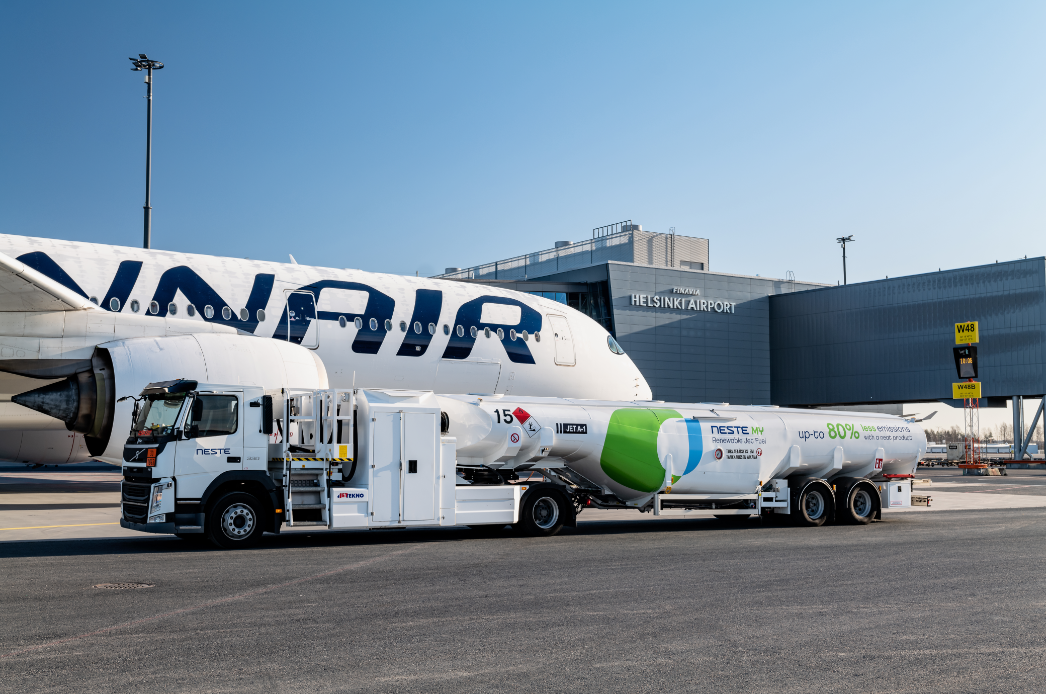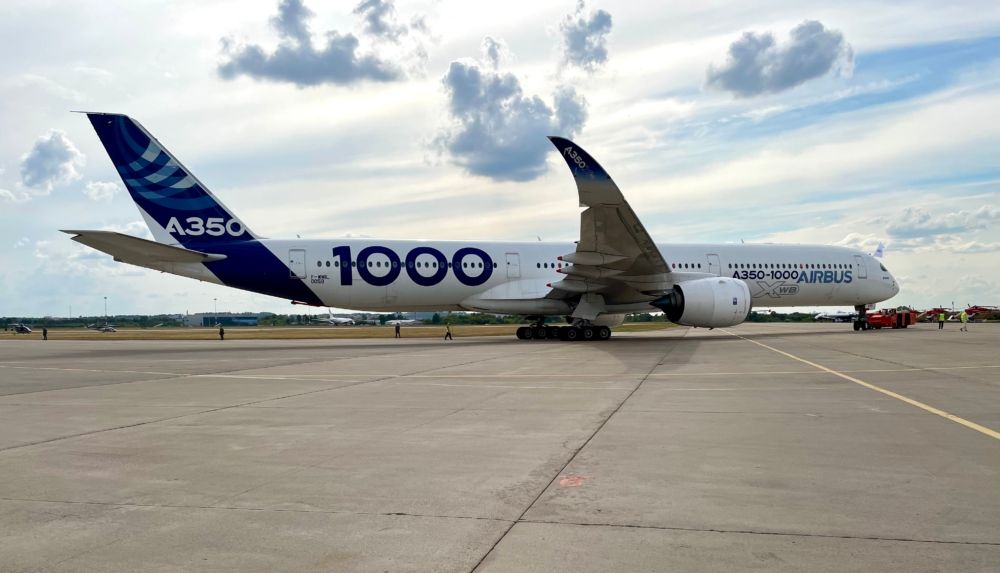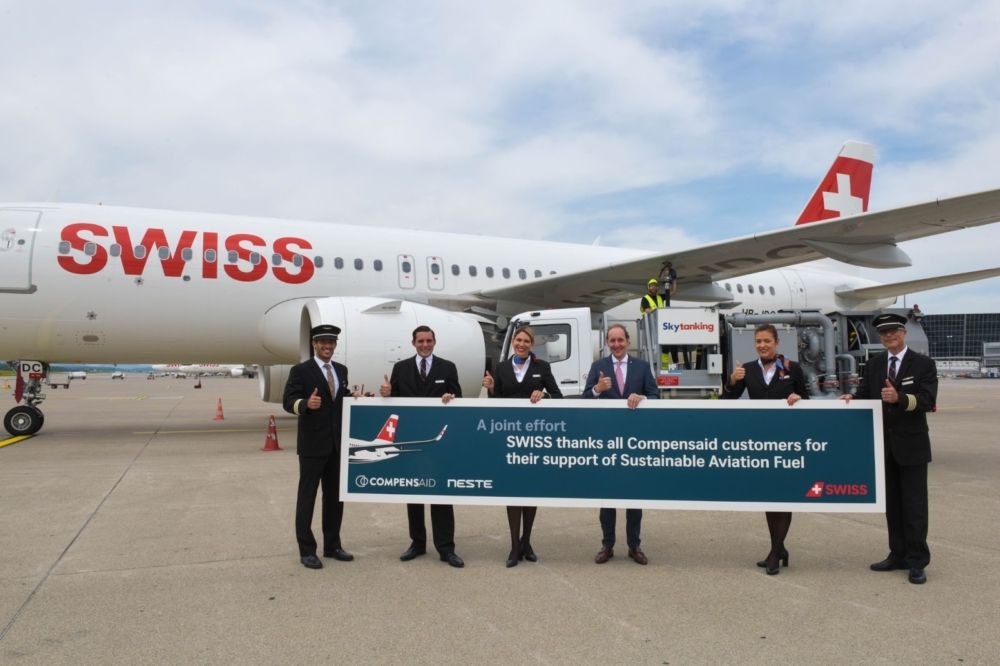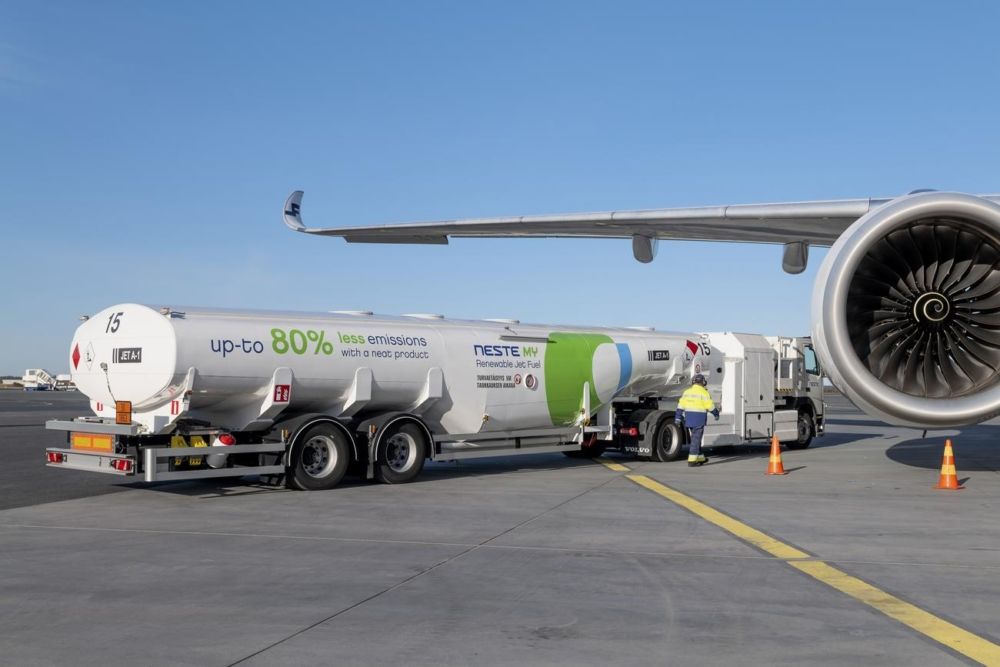Sustainable Aviation Fuel (SAF) has been a hot topic in the aviation industry in recent years. While there is a common understanding regarding the significance of deploying greener fuels, there is still some hesitancy to make the leap away from traditional fuels. However, airlines may soon not have much of a choice amid the ever-changing conditions of the market.
Work to be done
SAF represents less than 1% of the fuel used in civil aviation. As a result, stakeholders have been working to ramp up usage across the industry. For instance, Airbus is looking to transform its aircraft, which all currently are certified to fly with up to a 50% SAF blend, to be 100% compatible by 2030.
Airbus has been collaborating intently with its partners, including Neste, an oil refining powerhouse, with over seven decades of experience in fuels. The firm has made a notable shift to forming a renewable aviation team and recognizing the need to commit to sustainable solutions as the aviation market grows. Subsequently, the company developed Neste MY Sustainable Aviation Fuel, a drop-in solution that is readily available and already in commercial use.
Notable benefits
There are numerous advantages to the deployment of SAF, especially when it comes to the environment. Moreover, governments are increasingly forming policies to push carriers into adopting more sustainable fuels. Thus, operators need to take on a reliable and effective solution in response.
Jonathan Wood, Neste Renewable Aviation VP, Europe and APAC, told Simple Flying,
"Neste MY Sustainable Aviation Fuel is made from waste oils and fats. On a lifecycle analysis basis, it delivers up to an 80% reduction in greenhouse gas emissions, versus the fossil jet fuel alternative. That's taking everything into account, from sourcing of the raw materials to their upgrading or cleaning, then refining into the product, and then bringing that product to market.
"When we delivered, for example, Neste MY Sustainable Aviation Fuel into Japan, last year, including the shipping, we delivered an 89.5% reduction in greenhouse gas emissions versus the fossil jet fuel alternative.
"So, that's the reason to take on sustainable aviation fuel, and I think the industry as a whole recognizes that sustainable aviation fuel is going to be a very large part of how the industry can reduce its net emissions through to 2050 and beyond. It also has other non-CO2-related benefits.
"There have been studies by research establishments to understand the broader climate change benefit of using sustainable aviation fuel, which has not only a net reduction in carbon emissions but also reduced particulates and other emissions, which also have a climate change impact on CO2 benefits."
Industry challenges
Specific airlines, especially low-cost carriers, have been raising concerns about the cost of using SAFs. While they have expressed interest in switching over, the overall mathematics may mean that price structures need to be overhauled.
The reality is that the sourcing of waste materials and recycling them costs more. So, the more the production technologies are developed and scaled up, the more efficient the process will become, and costs will decrease.
Nonetheless, Neste highlights that society has a decision to make. If the aviation industry doesn't proactively move down a pathway of reduced emissions, then society could potentially argue for simply reducing the amount of aviation travel.
The wider mission
Over the last century and a half, global temperatures have risen by nearly 1.09°C. Trajectories also show that there may be a 2°C or 3°C temperature increase by the time 2100 rolls around. Therefore, the consequences of this shift will be far more expensive than paying a little more for fuel. Wood emphasizes that he doesn't feel there is really a choice about reducing emissions. Regardless, the industry will head down the pathway of the lowest cost of emission reduction.
"Sustainable aviation fuels typically cost somewhere between three and five times what fossil jet fuels cost, depending on the price of fossil jet fuel at any point in time. But, when we put that in terms of what it means for the passenger, we're looking at for short-haul European flight, maybe $3-$5 for a 10% usage of SAF, maybe $30 to $40 for a longer haul flight," Wood added.
"So, yes, on the one hand, it is clearly a significant cost item, and it would represent a significant cost increase for the airline, but at the end of the day, we've got to look at what air travel costs to the end consumer - the passenger, the business traveler, or the cargo freight shipper. And, we're seeing already today that businesses, both for their business travel but also for their air cargo shipments, are willing to commit to the additional cost in order to ensure that their products and their company operations fulfill the aspirations that we now have as a society to reduce our emissions."
Stay informed: Sign up for our daily and weekly aviation news digests.
Altogether, it's not just about the airlines bearing the brunt of the cost and not passing it on. This is a cost of aviation to society and the end-users.
A crucial period ahead
It's important to have a level playing field. Several companies have already been speaking of frustrations about being potentially disadvantaged if SAF is promoted in one segment and not another. Wood concludes that this is where government policy has a very important role to play. Authorities must ensure that there is balance across the market.
Airlines, manufacturers, and governments agree that SAF will be a primary solution in the short and medium-term while other fields such as electric and hydrogen mature. Yet, even though there has been considerable progress in the sourcing of SAF, there is still a long way to go on the front end.
Jonathan Wood is one of the speakers at Dubai Airshow, an event due to take place from November 14 to 18 2021 – Register Now.
What are your thoughts about sustainable aviation fuels? What do you make of the usage of SAF in the coming years? Let us know what you think of the prospects here in the comment section.




